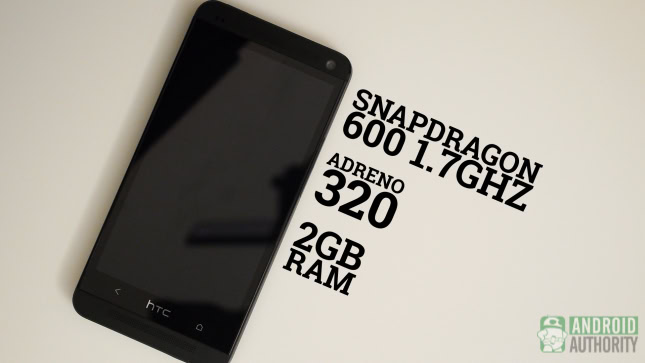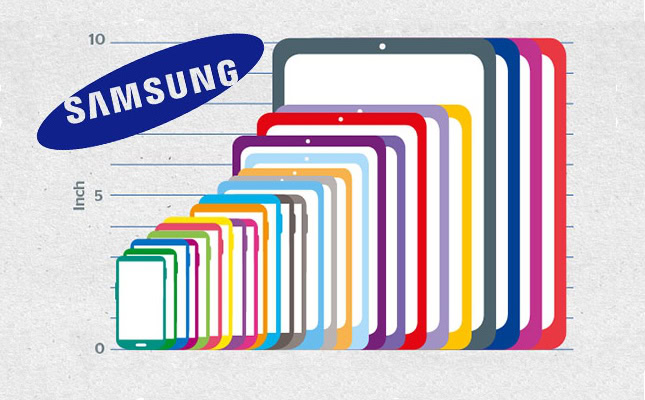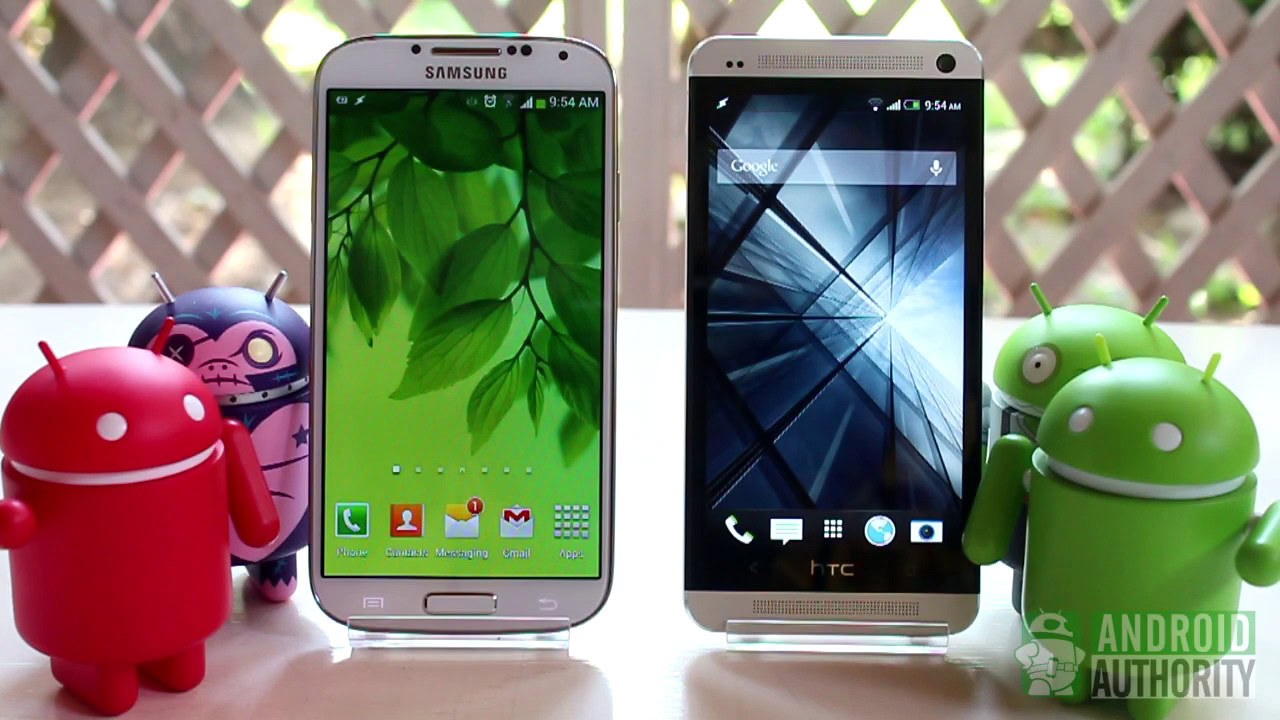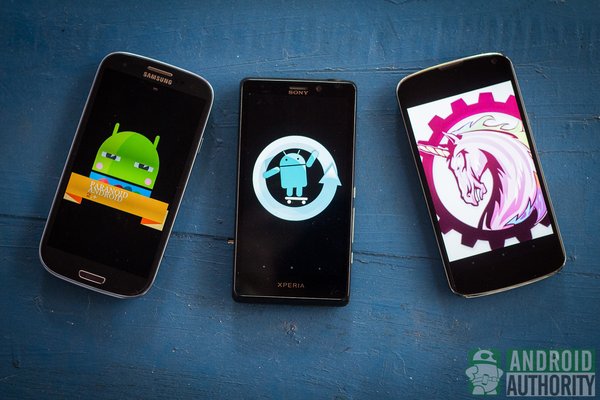Affiliate links on Android Authority may earn us a commission. Learn more.
The five reasons why Android is killing Apple

Despite Apple’s best attempts to rejuvenate its stale software, and for all it’s glitz and glamour, I don’t believe that iOS 7 will change the current balance of power. My reasoning: because it fails to address key issues which separate Apple and Android.
I know some people will argue that Apple isn’t interested in the same markets as Android, and that it’s not the company’s goal to try and please everyone, which is fair enough. But my rebuttal is that the technology industry is brutal; it’s survival of the fittest, and those who don’t adapt will fall by the wayside.
So, in no particular order, here are my top five reasons for Android’s success over Apple:
1 – Hardware diversity
Perhaps the most obvious reason for Android’s more recent dominance in the mobile market is because the operating system is simply available to a larger number of people. Apple’s relatively high price point for its products keeps them out of reach of many consumers, especially when it comes to emerging markets. Whilst Apple is maintaining a strong market share in some of the world’s top economies, the US, Japan, Europe, etc, it’s lagging significantly behind other manufactures in other markets.
Android, on the other hand, has a range of manufacturers producing a range of products. Without a central company dictating when new top of the line phones are released, Samsung, HTC, Sony, etc, are available to offer the very highest spec products as soon as new technologies become available, offering the best top of the line devices to consumers. We’ve seen over the course of just three months, faster and more powerful smartphones than ever before, whilst Apple is still stuck on last generation hardware technologies.

At the other end of the spectrum, the same companies are free to design smartphones and tablets which meet more budget price ranges, whilst still providing consumers with a decent smartphone experience thanks to the Android OS. This is proving to be a particularly strong business idea in emerging markets.
Now, whilst Apple may not be interested in lowering its price to meet the needs of these markets right now, today’s emerging markets are tomorrow’s wealthy economies. By ignoring consumers at this early stage, Apple risks facing an uphill battle against a more established brand, Android for example, if it decides to try and sell products in these markets in the future.
But it’s not just a problem with the price; Apple’s product line-up is also extremely limited for even high-end purchasers. Currently you’re stuck with a choice of just one size and spec of phone, which whilst easy for Apple to maintain, means that consumers can’t opt for a larger screen size, additional storage, or whatever other features they might prefer to have attached to their handset or tablet.

Take the Galaxy Note series of smartphones for example, they’ve proved to be extremely popular as they offer customers a unique experience which can’t be had with traditional 5 inch or smaller smartphones. Sony and HTC, amongst other companies, are eager to catch-up in the market space, but Apple’s stubbornness to keep its product portfolio small is restricting its ability to meet real consumer demand.
Similarly, smaller tablets are another prime example of Apple’s inflexibility. I’m sure we all remember Apple dismissing 7 inch tablets as too small to be useful, and then laughed wholeheartedly when the company announced the iPad Mini. Apple’s problem is that is seems to think that it can best dictate what consumers want, whereas Android lets the market decide, and recently this approach has worked very well in Android’s favour.
2 – Competition and innovation
But it’s not just a battle between Google and Apple, each manufacturer utilizing the Android operating system is in direct competition with everyone else, which had led to a much faster pace in innovation. There’s a distinct advantage in offering consumers something which they can’t get anywhere else — look at the recent top of the line Samsung and HTCproducts, the Galaxy S4 and the One, for example.
Now whilst you might love or hate TouchWiz or Sense, there’s no denying that both of the company’s have invested a lot of resources in improving their own handsets above and beyond the basic Android experience, in order to stand out above the competition. Consider the massive range of additional software piled in with the Galaxy S4: exercise tracking software, better multitasking functionality, and additional camera settings, amongst plenty of other things. HTC, on the other hand, has invested heavily in its BoomSound system, Sense 5, and BlinkFeed, which offers consumers a different experience to Samsung’s.

But this doesn’t just apply to software; the HTCOne aimed to provide a top quality audio experience above that of Samsung’s, whereas Samsung attempted to win over some consumers with the faster Exynos 5 Octa processor. Similarly, Sony’s Xperia Z boasts extra features such as waterproofing and improved scratch resistance, something which Samsung has since copied with the Galaxy S4 Active after identifying that it was a great idea that consumers wanted.
Furthermore, the next line-up of smartphones are already gearing up to take advantage of faster processing technologies, like the Snapdragon 800, in order to place themselves ahead of the current crop of smartphones, which is possibly why we’ve been hearing rumors of a beefed up Galaxy S4 as well. It’s a constant battle to offer the best products, which is a massive win for consumers.
This level of internal competition doesn’t exist with Apple products, and it shows when you look at the much slower rate of progress taking place with the iPhone.
3 – Open source, free market system
You’ve probably noticed that a lot of Android’s strength stem from its open nature, which allows third parties to do what they want with the platform in order to offer consumers products which they would like to use. This has seen Android leap ahead of iOS in recent years, and has helped the platform capture larger and larger shares of the smartphone and tablet markets, but it’s also spun off a range of entirely new products.
Android has already broken into the gaming space, in a way which Apple hasn’t even started to think about, thanks to Kickstarter projects like Gamestick and OUYA, and even projects funded by big companies like NVIDIA. NVIDIA Shield is an excellent example of a company utilizing Android in a fairly unique way, offering a handheld gaming platform with all the functionality of a full operating system. Apple certainly isn’t doing any of this, which again is going to introduce more and more consumers to the Android ecosystem whilst Apple remains stuck with its current clientele.

There have also been a whole range of other Android powered products which have appeared thanks to innovative third party companies. Plenty of manufacturers are now offering mini Android PCs, often in the form of a USB stick sized device, which bring computing into your living room for around $50 or less. There’s a range of Android TV products as well, which give users access to a range of media options in the living room.
We haven’t even talked about software yet, but now’s a good a time as any. Of course, Apple fans will likely say that the Google Play Store is full of rubbish apps and that the App Store takes in a lot more money, which is true, to some extent at least anyway. But firstly, the amount of money the store makes isn’t necessarily in the best interest of consumers. Android has plenty of cheap or free apps which are great, so the money issue is just a silly one.
As far as app quality goes, it’s certainly true that there are some poor quality apps on the Play Store, but it doesn’t usually take long for these to be exposed and weeded out. The rating system certainly does its job, and most of the regularly downloaded apps in the Google Store are as good as anything found in Apple’s store. In fact, the ease in which apps and software can be uploaded to the Play Store is one of Android’s strengths, as it allows developers to easily and quickly respond to consumer demand, rather than having to wait eons for authorisation from Apple.
4 – Strong developer community
This brings us neatly onto the next point, a strong and ever growing developer community.
We all know that there are a variety of custom ROMs for a start, each offering unique features, porting the default Android experience to handset which would otherwise go without, and some aiming to improve system performance. ROMs like CyanogenMod have proven hugely popular because of their punctual updates for handsets which otherwise would go without the latest versions of Android, and others like Paranoid Android are intent on innovating on the default Android experience.

Some community driven developments, like notification features for example, have even gone on to be incorporated into official versions of Android. With more minds working on the same problem, you’re far more likely to achieve superior results than deciding everything with a select group of individuals behind closed doors.
Another example is the custom MIUI ROM, which has proven so popular that handsets pre-installed with the ROM sold out almost as soon as they were announced. Thousands of consumers with products that they want spawned from a third party developer, bringing even more consumers into the Android fold without Google having to lift a finger.
Android attracts innovation from both hardware and software developers
But it’s not just customs ROMs which are helping to drive Android’s popularity. We’ve already discussed the wide range of apps available, but developers are also more than happy to work on free projects to address the needs of certain parts of the Android community.
Samsung users will probably remember the Exynos processor root exploit which was plaguing various Galaxy handsets a few months back. The problem was initially addressed and patched by members of the development community well before Samsung put out their own updates. Whilst this issue isn’t particularly a selling point for Android itself, having a development community which can access the platform so easily has a huge number of benefits above Apple’s closed platform.
Similarly, look at the new privacy tools in development by the creator of CyanogenMod. In the light of the recent NSA data collecting scandal he saw a need for greater privacy and was able to immediately begin working on addressing people’s concerns, without having to wait for an official update, if one would ever come. I love that community members can so easily be creative with the platform, and whilst it certainly won’t be a major selling point for everyone, developers are what keep the platform moving forwards, it’s another huge benefit to innovation for Android compared with iOS.
But the developer community doesn’t just benefit those who are looking to mess about with the serious stuff under the hood, there are a vast variety of more simply tweaks which most users can take advantage of. Themes are an excellent example of user created content which is easily installed on most Android devices, there are thousands of custom icon packs too, and a plethora of different launchers which help users tweak their Android experience to exactly how they like it. Android works great out of the box, but unlike Apple, Google allows us to tinker away in whatever manner we see fit, to tailor the experience to exactly what we want, and that’s a big selling point for a lot of consumers.
5 – The Google ethos
Many of the reasons Android is doing so well listed above don’t really have anything to do with Google, but that isn’t to say that the company isn’t pulling its weight. Google has created a range of free applications which improve the users experience over the default operating system, and it’s constantly trying out new ideas and scrapping old ones which don’t work.
Google’s commitment to big data also gives the company a large edge over its competitors. Over the past decade Google has undertaken a huge number of projects aimed at giving users better access to the huge amounts of information stored on the web, ranging from obvious applications like Maps, to optimizations and improvements with its search engine. Google Now is an excellent example of Google’s innovation in this space, pulling information from a much larger set of data specifically for a user when they need it.

I suppose that this can best be summed up by Google’s willingness to experiment with various aspects of its ecosystem. Google Glass is a prime example of an idea which could well flop, but even so, the company is willing to invest time and money to see if it works. It’s this approach which has given the company a massive edge over its competitors, like Apple and Microsoft, when it comes to being on the cutting edge of web technologies. Android, as one of Google’s main projects, reaps the benefits of the company’s experimentation and innovation.
Looking at the situation in reverse, it’s hard to pinpoint anything interesting or experimental that Apple has done in recent years. The company is totally starved for unique projects by comparison, and does nothing to encourage or inspire third party development of its platform either. This can be seen in Apple’s recently rather uninspired unveiling of iOS 7, which in many ways is simply playing catch-up to Android.
To be fair, iOS 7 certainly has its good points but it’s simply not as a creative or innovative platform as Android, for all of the reasons mentioned above. Android attracts innovation from both hardware and software developers, which, in my opinion, is the main reason why our favourite mobile operating system is killing Apple.